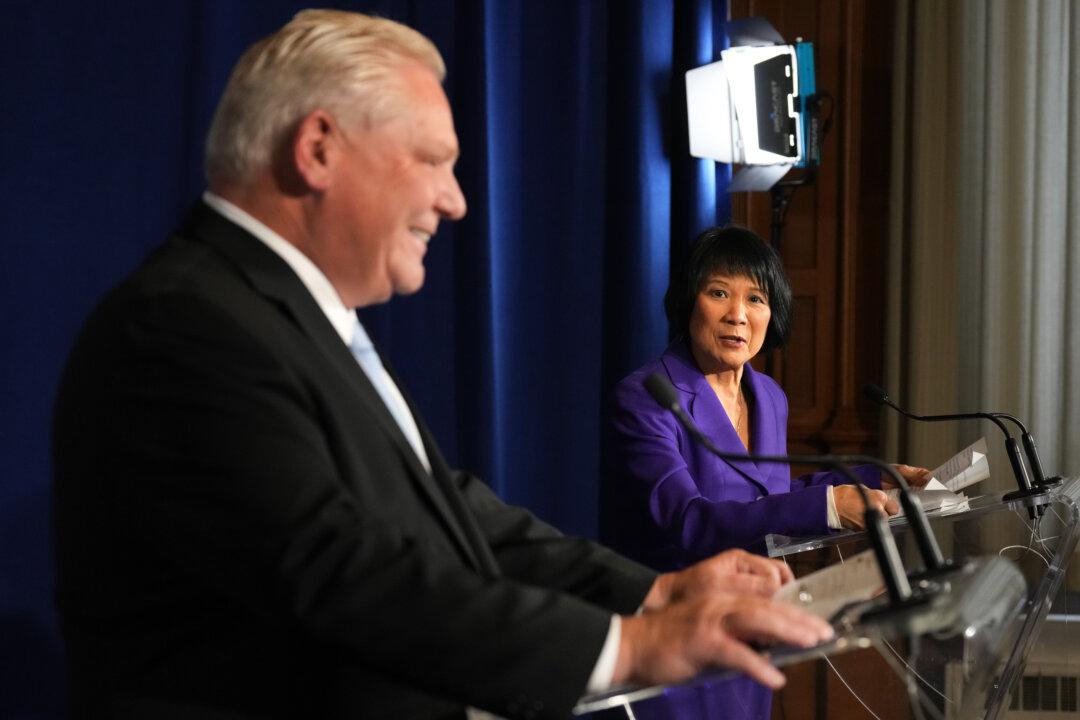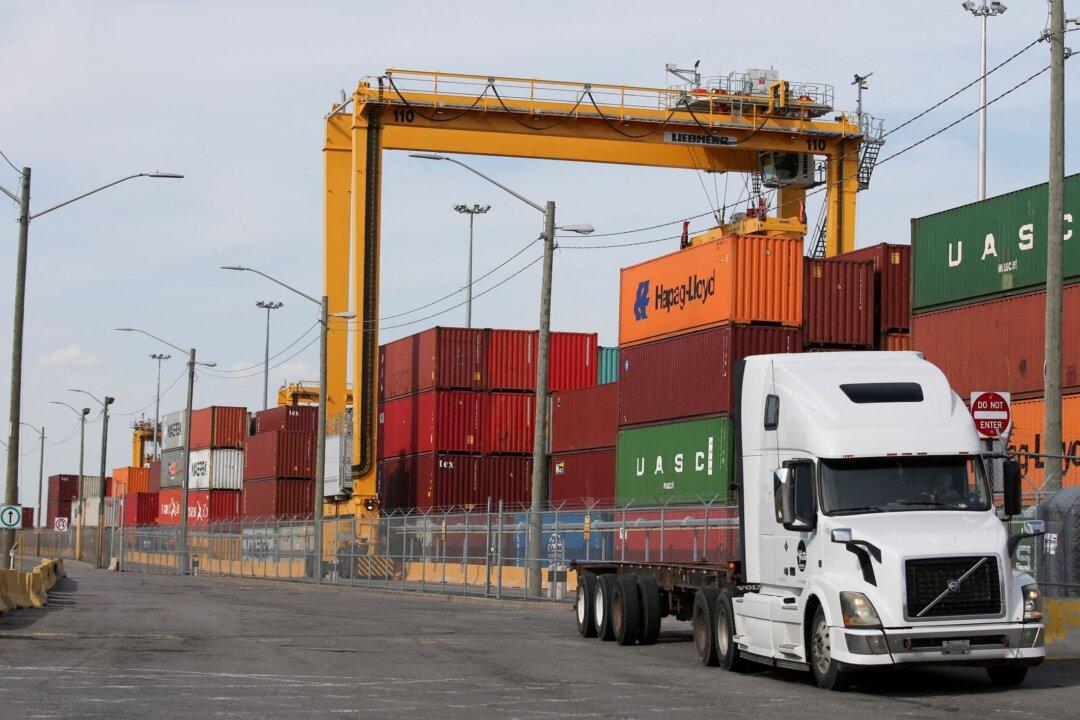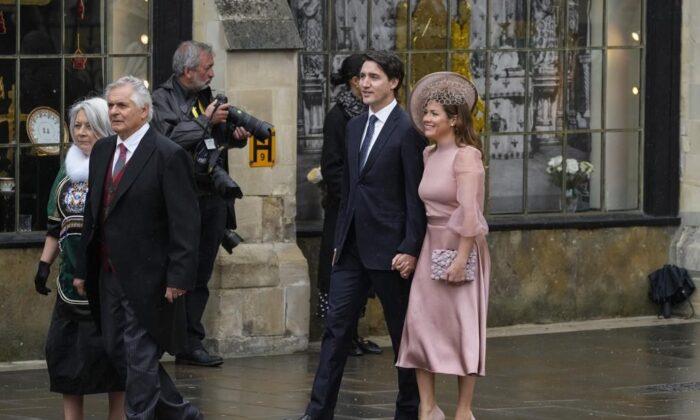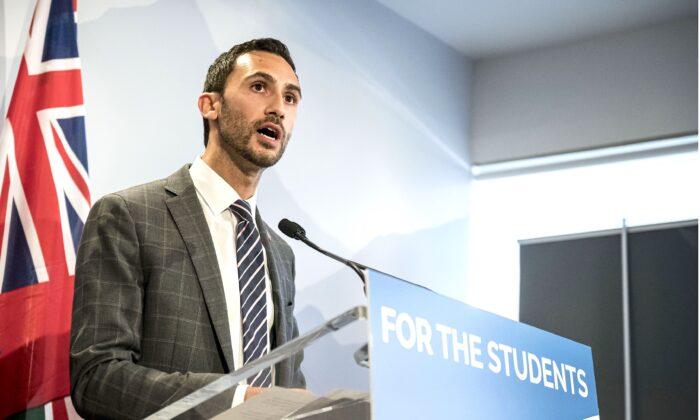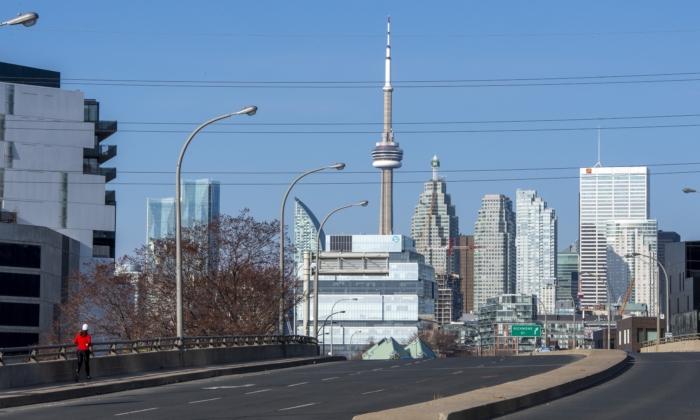Ontario Premier Doug Ford says the province will provide $1.2 billion in funding to Toronto over three years, in a bid to alleviate growing financial pressures on the city.
Mr. Ford made the announcement at a press conference on Nov 27, saying the funds would go toward operating supports, homeless shelters, policing, and finishing two LRT lines.
The premier also said the province would “upload” the capital costs of the Don Valley Parkway and Gardner Express Way, at a cost to the province of up to $7.6 billion.
“Thanks to the mayor and her commitment and dedication, and for putting our differences aside… this will be a game-changing historic deal,” Mr. Ford told reporters alongside Mayor Olivia Chow in Toronto.
The two levels of government have been working on a so-called “new deal'' for the city, which is facing a $1.5-billion deficit, and had agreed to avoid new taxes and cuts to frontline services.The deal was hailed by Ms. Chow as “a wonderful first step,” before calling on the federal government to “step up” and provide the final third of funding needed for housing and public transit.
Ms. Chow, who was a long-time city councillor before being elected mayor on June 28, ran on a platform of affordable housing, vowing to create at least 25,000 rent-controlled apartments.
Soon after being elected as mayor, she announced the city was “in a bit of a financial mess,” and did not have the funds it needed for critical infrastructure, a problem she said she inherited from the previous administration.
She said that one in 10 Torontonians was using food banks, and families were increasingly put in the situation of having to choose between paying rent or feeding their children and that 85,000 residents are currently on the wait list for some type of affordable housing.
Earlier this year, an independent accounting of the city’s finances from Ernst & Young said the city was facing a projected shortfall of over $46 billion over the next ten years.
The firm did not comment on what measures the city could or should take, only saying that Toronto’s $1.1 billion expenditure on social costs was a factor. Despite an $857 million operating shortfall in 2022, the city has not adjusted its spending on social housing, safe injection sites, and other social costs.
With the new $1.2 billion in direct funding and the assumption of capital costs for the city’s major freeways, Ms. Chow said this, “unlocks the city’s potential.” She said that the billions saved could go into affordable housing and improving Toronto’s transit system as well as community centres, parks, and libraries.
“This deal means we can do more for people,” said Ms. Chow, before reiterating that the federal government needs to provide the final piece of funding.
The premier echoed that sentiment, saying the feds need to “pay their fair share,” of funding for Canada’s largest city, saying Toronto represents about 20 percent of Canada’s $2.5 trillion economy. He added that Toronto houses the vast majority of migrants and refugees in the country, further obligating the federal government to provide funding, or to provide them with work permits to help offset the cost of supports.
Mr. Ford was later asked by reporters if his largesse would extend to other municipalities throughout the province, many of whom are also facing financial woes.
He replied that his administration has provided more funding to all of Ontario’s 444 municipalities than any other provincial government.
